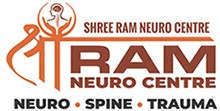Neurological Disorders: Understanding the Complexities of the Human Brain
Introduction
In today’s fast-paced world, the prevalence of neurological disorders has been on the rise. These disorders affect millions of people worldwide, impacting their quality of life and often requiring specialized medical attention. As an expert in the field, let me guide you through the intricacies of neurological disorders, shedding light on their causes, symptoms, and potential treatments.
Neurological Disorders: What are they?
Neurological disorders encompass a wide range of conditions that affect the nervous system, including the brain, spinal cord, and nerves. These disorders can be either genetic or acquired, and their manifestations can vary significantly from person to person. Common examples include Alzheimer’s disease, Parkinson’s disease, epilepsy, multiple sclerosis, and stroke.
Causes and Risk Factors
The causes of neurological disorders can be multifactorial, making the diagnosis and treatment challenging. Some disorders, such as Alzheimer’s, have a genetic component, while others, like traumatic brain injury, result from external factors. Age, lifestyle, environmental factors, and pre-existing medical conditions can also influence the risk of developing neurological disorders.
Symptoms and Diagnosis
Symptoms of neurological disorders can vary widely, depending on the specific condition. However, common manifestations include memory loss, impaired coordination, muscle weakness or spasms, seizures, difficulty speaking or understanding speech, and sensory abnormalities.
Diagnosing neurological disorders often involves a comprehensive evaluation, including a thorough medical history, physical examination, and sometimes advanced imaging techniques like magnetic resonance imaging (MRI) or computed tomography (CT) scans. Additionally, specialized tests such as electroencephalography (EEG) or nerve conduction studies may be employed to assess the function of the nervous system.
Treatment Options
While neurological disorders may not have a definitive cure, various treatment options aim to manage symptoms, slow disease progression, and improve quality of life. Treatment plans are typically tailored to the individual, taking into account the specific disorder and its stage. These may include medications, physical therapy, occupational therapy, speech therapy, and surgical interventions.
Promising Advances in Research
The field of neurology is constantly evolving, with ongoing research shedding light on new treatment approaches and potential breakthroughs. Scientists are exploring innovative techniques such as gene therapies, stem cell therapies, and deep brain stimulation to target neurological disorders at their core.
Coping with Neurological Disorders: Support and Education
Living with a neurological disorder can be challenging for both patients and their families. It is crucial to seek emotional support and educate oneself about the condition. Support groups, counselling, and online resources can provide valuable information, guidance, and a sense of community for those affected by these disorders.
Conclusion
Neurological disorders pose a considerable burden on individuals and society as a whole. Understanding the complexities of these disorders is essential in effectively managing them and providing the best possible care. By staying informed, seeking professional help, and advocating for research advancements, we can collectively work towards improving the lives of those affected by neurological disorders.
Remember, if you or a loved one is experiencing symptoms related to neurological disorders, it is crucial to seek medical attention promptly. Your healthcare provider can provide a proper diagnosis and guide you towards appropriate treatment options.
Don’t let neurological disorders define you. Take control of your health and empower yourself with knowledge and support.


